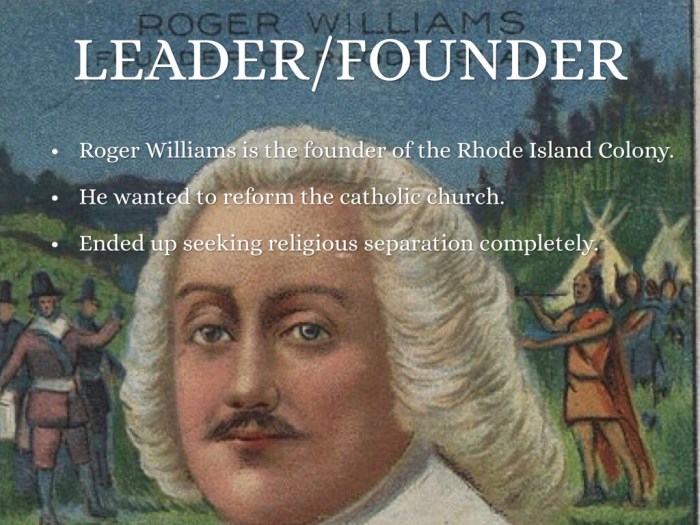What colony’s founders believed that tolerance was a great virtue – Maryland’s founders believed that tolerance was a great virtue, a conviction that shaped the colony’s laws, policies, and social practices. This commitment to tolerance set Maryland apart from other colonial societies and had a lasting impact on its development and identity.
The colony’s founder, George Calvert, was a Catholic who had faced religious persecution in England. He sought to create a haven where people of all faiths could live together in peace. Calvert’s vision was enshrined in the colony’s charter, which guaranteed religious freedom to all settlers.
Historical Context
During the colonial era in Europe, religious intolerance and persecution were widespread. The Protestant Reformation had led to religious wars and political upheaval, leaving deep divisions in society. In the 17th and 18th centuries, the Enlightenment movement emerged, emphasizing reason, tolerance, and individual rights.
Founders’ Beliefs
The colony whose founders believed in tolerance as a virtue was Rhode Island. Roger Williams, Anne Hutchinson, and Samuel Gorton were among its prominent founders. They had fled religious persecution in Massachusetts Bay Colony and sought to establish a new society based on religious freedom.
Manifestations of Tolerance
Rhode Island’s commitment to tolerance was reflected in its laws and policies. The colony’s charter guaranteed freedom of conscience and religion to all inhabitants. It also established a separation between church and state, preventing any one religion from becoming dominant.
- Religious diversity: Rhode Island became a haven for religious dissenters, including Quakers, Baptists, and Jews.
- Freedom of expression: The colony protected the right to criticize the government and express unpopular opinions.
Challenges to Tolerance: What Colony’s Founders Believed That Tolerance Was A Great Virtue

Rhode Island faced challenges to its commitment to tolerance. Neighboring colonies, such as Massachusetts Bay, were hostile to its religious diversity. Internal conflicts also arose within the colony, as different religious groups competed for influence.
Despite these challenges, Rhode Island’s leaders worked to maintain tolerance. They enacted laws to protect religious minorities and promoted a culture of respect and dialogue.
Legacy of Tolerance

Rhode Island’s commitment to tolerance had a lasting impact on its development and identity. The colony became a model for religious freedom in the American colonies and helped to shape the principles of the United States Constitution.
In contrast to other colonial societies, such as the Puritans in Massachusetts Bay, Rhode Island’s approach to tolerance fostered a diverse and prosperous society. It attracted settlers from a wide range of religious backgrounds and contributed to the colony’s economic and cultural growth.
Expert Answers
Why did Maryland’s founders believe that tolerance was a great virtue?
Maryland’s founders had experienced religious persecution firsthand and believed that tolerance was essential for creating a just and harmonious society.
How did Maryland’s commitment to tolerance manifest itself in the colony’s laws and policies?
Maryland’s charter guaranteed religious freedom to all settlers, and the colony’s laws and policies were designed to protect this right. For example, Maryland was one of the first colonies to pass a law against blasphemy.
What were some of the challenges that Maryland faced in maintaining tolerance?
Maryland faced pressure from both England and neighboring colonies to conform to Protestant orthodoxy. However, Maryland’s leaders remained steadfast in their belief that tolerance was essential for the colony’s success.